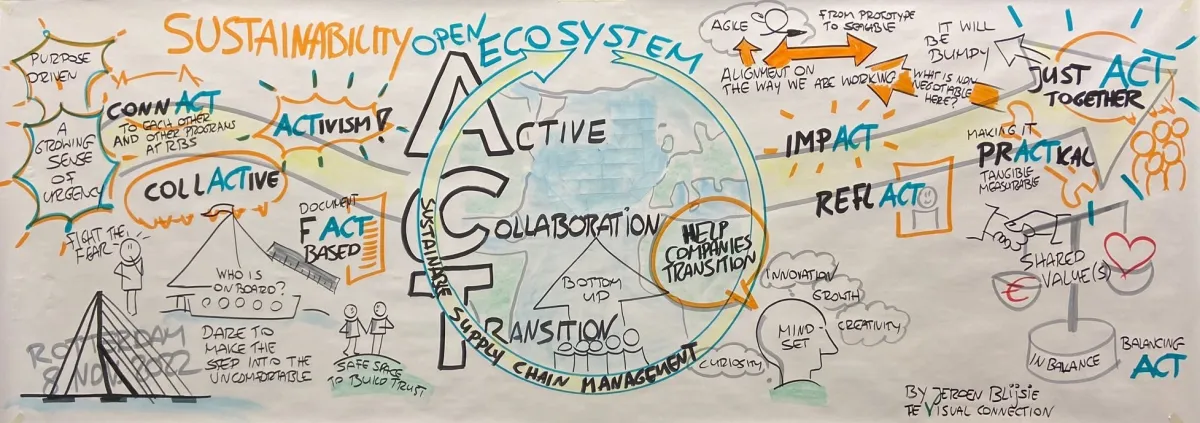ACT (Active Collaborative Transitions) is co-designed with all its stakeholders and represent an educational innovation implemented in the master education of supply chain managers.
ACT empowers students to purse topics they care about, encourage their autonomy, facilitate deep-learning and act upon sustainability challenges. Innovative ACT setup brings together the triple helix of education, work field and research, induces and supports collaborative learning, co-creation and growth of action-oriented sustainable mindset to allow students, but also all parties, to develop and learn collaboratively, aligning the supply and demand for sustainability positions at the labor market.
We believe that education has a key role for sustainable development (SGD4). Questions we started from include:
- What are the innovative tools that can help to inform and guide choices and ensure that companies can make decisions that are profitable and at the same time good for the environment and society?
- In which way sustainability topics (life cycle assessment, CO2 emissions' reduction, circular pathways, etc.) need to be taught at the business school so that future managers can make the change?
ACT (Active Collaborative Transition) as an ecosystem (physical and digital shared space) where students, lecturers, researchers and companies form learning communities and engage in Enquiry and Problem-based collaborative learning. ACT innovation enables collaborative learning of all parties involved: students that learn to apply innovative practical tools; companies (especially SMEs) learning how to improve their sustainability, new knowledge is created and shared with broader professional and academic public.
ACT innovation goes a step further then similar living labs, by not only aspiring to change the behavior of students but also by empowering them to take action and produce (together with the ACT community) positive impact on sustainability transitions (proof of practice). Students get equipped with knowledge, practical tools and a breeding ground to act as change agents, practice leadership and reverse mentorship and achieve not only their academic degree but also proof of work/practice.


Thanks for sharing!
Today's students are tomorrow's workers, problem solvers and leaders. Access to quality education, which includes sustainability issues, is vital for children and youth to see sustainability not as an occasional act of social responsibility, but as a continuous search for creative solutions.
Please log in or sign up to comment.